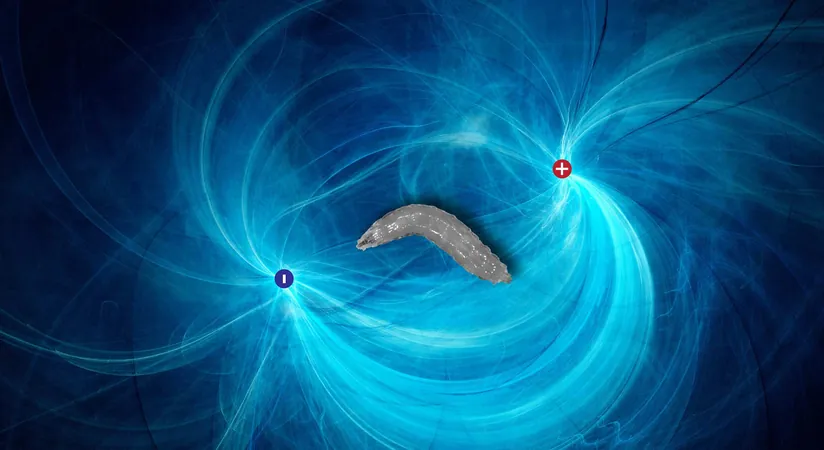
Fruit Fly Larvae Unveil Shocking New Sixth Sense: Sensing Electric Fields!
2025-04-09
Author: Li
A Shocking Discovery in Electroreception!
In an electrifying breakthrough, researchers at UC Santa Barbara have revealed that fruit fly larvae possess the remarkable ability to sense electric fields! This capability, known as electroreception, is already a familiar feat among creatures like sharks, bees, and the iconic platypus.
Adding to the Ranks of Electroreceptive Species
Led by Matthieu Louis, the research team stumbled upon this captivating skill while exploring the sensory perception of Drosophila larvae. Their findings, published in the esteemed journal Current Biology, open exciting new avenues for research, particularly in genetics and bioengineering, as fruit flies are already a staple in scientific studies.
Exploring the Origins of This Sensory Ability
Louis commented on the significance of electro-sensation, stating, "To us, it might not mean much, but for many animals, it’s crucial." This revelation came on the heels of a similar discovery in the nematode C. elegans, prompting Louis's curiosity about whether fruit flies might share this unique trait.
Experimental Insights into Electric Field Navigation
Julia Riedl, one of Louis's students, spearheaded the investigation using gel electrophoresis—a technique typically used to analyze DNA. To their astonishment, when a Drosophila larva was placed in an electric field, it demonstrated strong behavior by reorienting itself toward the negative electrode!
Pinpointing the Source of Electroreception
Eager to understand how the larvae sensed electric fields, the team delved deeper to identify the specific neurons involved. They utilized a gene called GAL4 to selectively silence certain neurons, successfully locating the responsive ones near the head region, an area typically associated with smell and taste.
A Scientific Journey of Persistence
This pivotal research journey began back in 2009 in Barcelona, taking over 15 years to reach fruition. The team faced challenges in isolating electric fields from other environmental variables, yet collaboration with experts in electrochemistry and mechanical engineering proved invaluable.
Unraveling the Mystery of Evolutionary Advantage
While the exact evolutionary reasons for fruit fly larvae's electroreception remain speculative, theories suggest that this ability may help larvae navigate their dark, rotting fruit environment in search of nutritious pulp or evade predators like parasitoid wasps.
New Horizons in Sensory Research
This groundbreaking find not only enhances our understanding of sensory systems in animals but could also unlock crucial insights into cellular behaviors like movement in response to electric fields, which is significant for applications like wound healing.
The Future of Electroreception Studies
The Drosophila larvae might pave the way for a deeper genetic understanding of electroreception, potentially leading to groundbreaking bioengineering techniques that could redefine how we manipulate and understand biological systems. Louis envisions studying this new sensory modality in fruit flies as a potential game-changer for future research.


 Brasil (PT)
Brasil (PT)
 Canada (EN)
Canada (EN)
 Chile (ES)
Chile (ES)
 Česko (CS)
Česko (CS)
 대한민국 (KO)
대한민국 (KO)
 España (ES)
España (ES)
 France (FR)
France (FR)
 Hong Kong (EN)
Hong Kong (EN)
 Italia (IT)
Italia (IT)
 日本 (JA)
日本 (JA)
 Magyarország (HU)
Magyarország (HU)
 Norge (NO)
Norge (NO)
 Polska (PL)
Polska (PL)
 Schweiz (DE)
Schweiz (DE)
 Singapore (EN)
Singapore (EN)
 Sverige (SV)
Sverige (SV)
 Suomi (FI)
Suomi (FI)
 Türkiye (TR)
Türkiye (TR)
 الإمارات العربية المتحدة (AR)
الإمارات العربية المتحدة (AR)